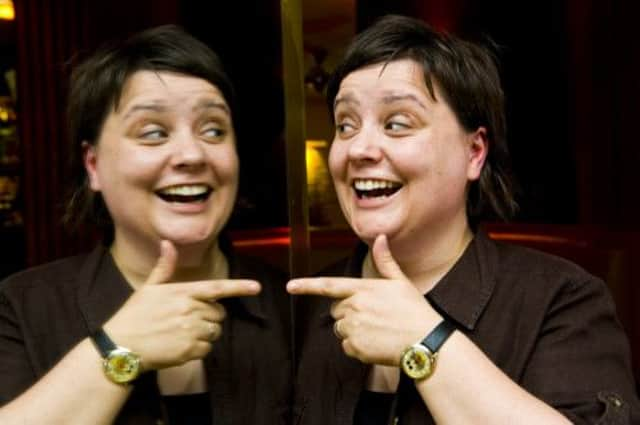Eddie Barnes: The arts world and independence


OK, so Andrew Marr and Alasdair Gray will be at the Book Festival talking about it. And there’ll be the obligatory debate on it chaired by Kirsty Wark. But, little more than 12 months out, where is the vibrant artistic take on the “most important vote for 300 years”, aka the Scottish independence referendum?
Only a smattering of pieces are prepared to take on the Big Subject this summer, it appears. One is Preen Back Yer Lugs, an adaptation of a Finnish play, which is being brought to the city by a Scot, Paul Matthews. “I assumed we’d be up to our ears in Scottish independence this year, but strangely we aren’t,” he was yesterday quoted as saying. “People may be keeping their powder dry. We’ll probably see a plethora of work in 2014.”
Advertisement
Hide AdAdvertisement
Hide AdStand-up comic Keir McAllister also bemoaned the absence. “This is the most important constitutional moment this country has faced, and we’re not even talking about it,” he said.
For the arts scene in Edinburgh, read the country’s business community. Last week, in unguarded comments to an audience in London, the UK chairman of business services giant PwC, Ian Powell, also spoke about the silence.
“We’ve got a Scottish business and it seems to us that quite a lot of Scottish businesses don’t seem to want to get engaged in the debate at the moment, whether it’s for fear or whatever the specific reason, I don’t know,” he declared.
It isn’t as if the silence has been total. In the arts, Rory Bremner made an earnest attempt to satirise the debate on a BBC programme earlier this summer. And in business and commerce, organisations such as the Institute of Chartered Accountants in Scotland (ICAS) have shown it is possible to contribute much-needed expertise to the debate without being accused of partisanship.
But, with what pro-independence campaigners describe as a “mood of acrimony” hanging over the debate – a mood supercharged thanks to social media’s reach – is it surprising that many others are choosing to pass?
In the arts, comedian Susan Calman has already had her fingers burned, after having poked some fun at the campaign. In business, firms may conclude there is little point in upsetting powerful politicians over something which – if the polls are to be believed – shouldn’t be top of their list anyway. A PwC spokesman added last week that firms were “concerned about getting engaged in a political debate that might distract them from the number-one priority of managing their businesses through a challenging economic environment”.
The caution is so great that within boardrooms in Scotland even use of the word “yes” in their material, entirely disconnected with the referendum, must be analysed for any political connotations it brings. Might the next year witness a Scottish referendum hush: a silence of the clans?